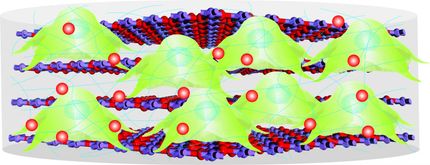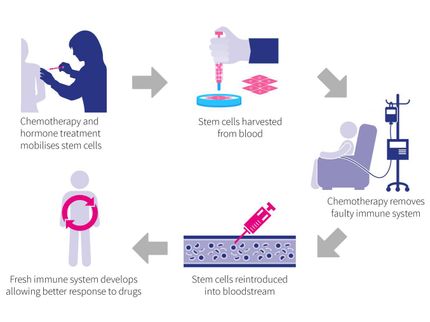U-M creates state’s first disease-specific human embryonic stem cell lines
Advertisement
University of Michigan researchers have created the state’s first human embryonic stem cell lines that carry the genes responsible for inherited disease. The achievement will enable scientists here to study the onset and progression of genetic disorders and to search for new treatments.
With this accomplishment, the U-M joins a small handful of U.S. universities that are creating disease-specific human embryonic stem cell lines. The two new lines are named UM9-1 and UM11-1.
“All our efforts are finally starting to bear fruit,” said Gary Smith, co-director of the U-M Consortium for Stem Cell Therapies and leader of the cell-line derivation project. “Creating disease-specific human embryonic stem cell lines has been a central goal of the consortium since it was formed two years ago, and now we’ve passed that milestone.”
UM9-1 carries the genetic defect that causes hemophilia B, a hereditary condition in which the blood does not clot properly. UM11-1 carries the gene responsible for Charcot-Marie-Tooth disease, a hereditary neurological disorder characterized by a slowly progressive degeneration of the muscles in the foot, lower leg and hand.
If embryos are created for reproductive purposes but are found to be unsuitable for that use because they carry disease, Michigan law allows those embryos to be donated for research instead of discarding them. At that stage of development, the donated embryos consist of a cluster of cells about the size of the period at the end of this sentence.
“UM9-1 and UM11-1 are the first of many disease-specific human embryonic stem cell lines that researchers at the U-M Consortium for Stem Cell Therapies intend to develop,” said consortium co-director Sue O’Shea, a professor of cell and developmental biology at the Medical School.
In the months and years ahead, donated embryos will be used to create cell lines that carry the genes responsible for myotonic dystrophy, Huntington’s disease, Rett syndrome, spinal muscular atrophy and Tay-Sachs disease, for example.
“This announcement puts the University of Michigan at the very forefront of stem cell research,” said Dr. Eva L. Feldman, director of the U-M’s A. Alfred Taubman Medical Research Institute.
“We will be one of the few institutions in the country to be creating embryonic stem cell lines targeted at understanding and treating specific inherited diseases,” Feldman said. “These stem cell lines hold so much promise for medical science, and for this reason, they will be of tremendous interest to researchers around the world.”
The consortium will distribute UM9-1 and UM11-1 samples to researchers across campus and to collaborators statewide. In addition, U-M researchers intend to submit the lines to the U.S. National Institutes of Health for inclusion in the national registry of human embryonic stem cell lines that are eligible for federal research funding.
UM9-1 and UM11-1 would be the only lines on the federal registry that carry the genes for hemophilia B and Charcot-Marie-Tooth disease. There are currently three disease-specific lines on the federal registry, which contains 91 human embryonic stem cell lines.
UM9-1 and UM11-1 are the second and third human embryonic stem cell lines created by U-M consortium researchers. The first line, UM4-6, was announced in October and was derived from a genetically normal five-day-old embryo created for reproductive purposes but no longer needed for that use and donated to the university.
The creation of all three lines was made possible by Michigan voters’ November 2008 approval of Proposal 2, a state constitutional amendment permitting scientists here to derive human embryonic stem cell lines using surplus embryos from fertility clinics.




























































